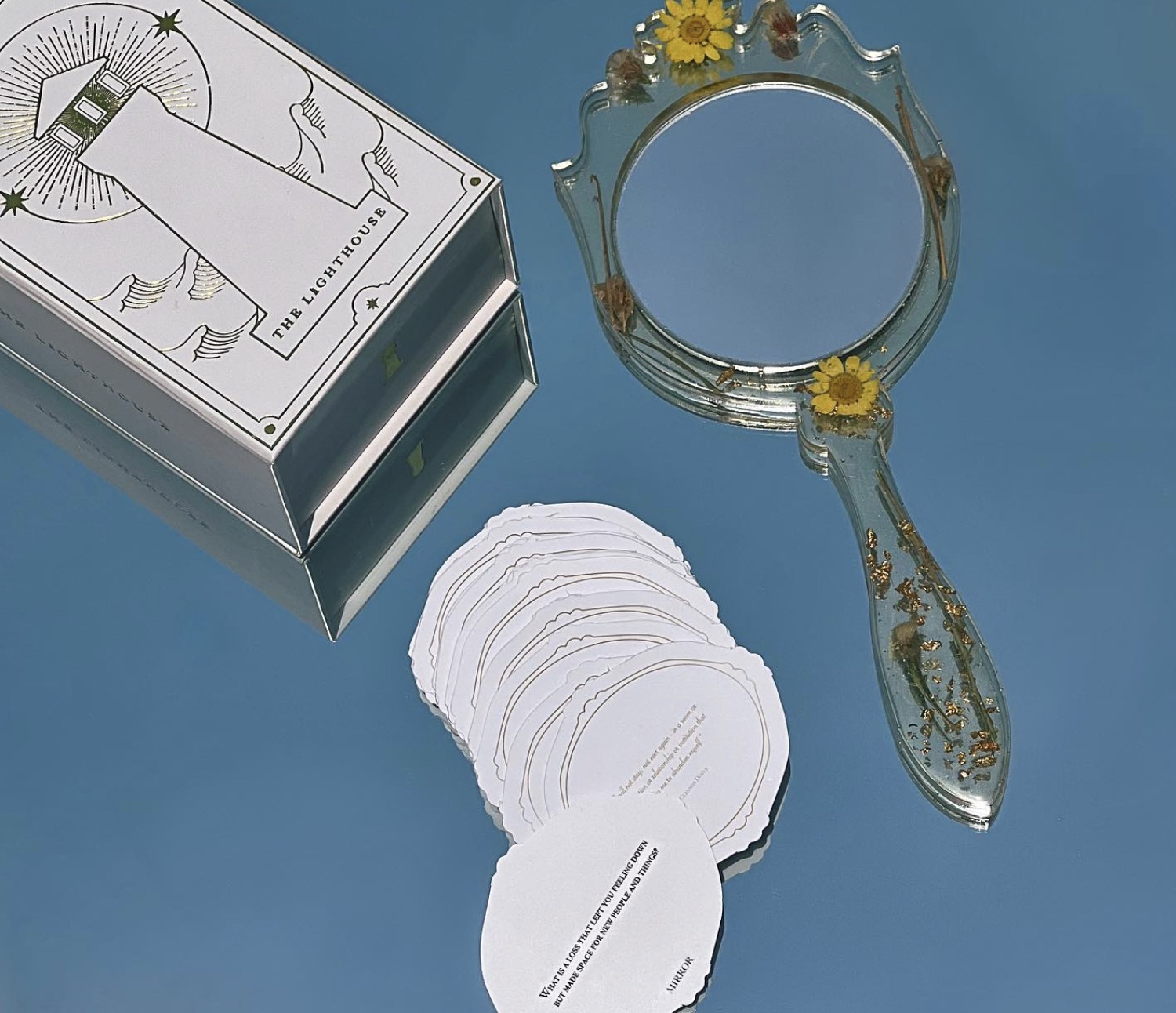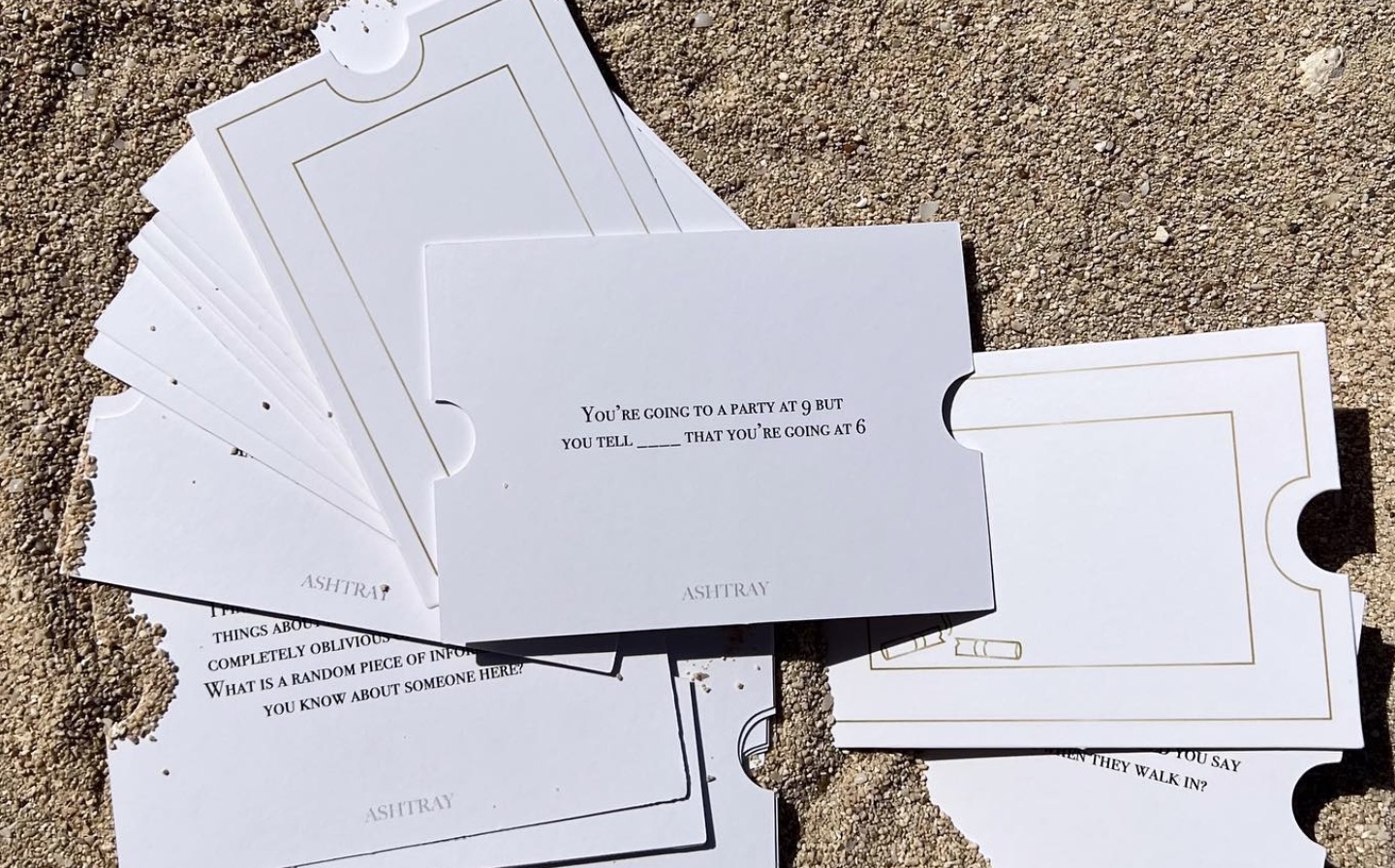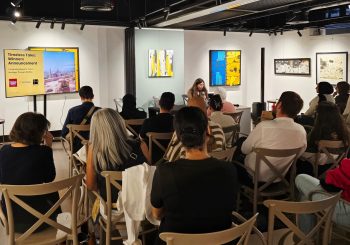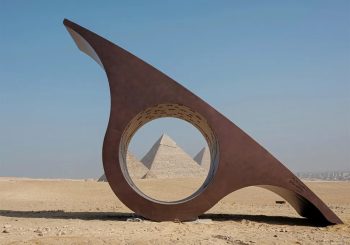Beyond the facade of social media and a world ever-consumed with technology, there is a desire for deep and meaningful connections. Egyptian card game The Lighthouse Cards accomplishes precisely that.
The rules are simple: players just need to listen; they are merely encouraged to be vulnerable and transparent. With each round, a player draws a card with a question, and everyone answers at their turn. The game consists of four categories, each with a different set of questions that can be played either with an intimate group of friends or in a big gathering.
The 23-year old founder, Heidi Helmy, had a vision of people using The Lighthouse to know, listen, and relate to one another. After nearly eight months of intricate curations of questions and research, the card game was released into markets in the summer of 2021.
Helmy, who works as a pastoral coordinator, is also an aspiring screenwriter. Her dream is to intertwine psychology and screenwriting by writing films that bring social change by shedding light on mental health. Her love for getting to know people and the value she places on the relationships is what sparked the making of Lighthouse.
To learn more about her vision, as well as the aim and future of the card game, Egyptian Streets spoke to Helmy.
WHY DID YOU CHOOSE LIGHTHOUSE? EXPLAIN TO US THE MESSAGE AND AIM OF THE GAME
By definition, a lighthouse is a tower that serves as a beacon of light to guide ships in the dark and navigate them through storms. I came to the realization that lighthouses don’t have to be tangible towers or buildings, sometimes they come in the form of ideas, and sometimes they come in the form of people. The self-reflective questions help people become more self-aware as they reflect on their characters. My hope is that people would find guidance in discovering themselves, and that it would ultimately impact their relationships in a positive manner.
I believe that our relationships with other people are transformed forever when we’re aware of our own motives, actions, and emotions first. My hope [for] the game is that it would help people see the light that is within them, and that when they get to know the scars and stories of the people around them, they would see light in them too.
TALK TO US ABOUT ABOUT THE INSPIRATION AND IDEATION STAGE OF THE GAME
I am naturally a very curious person. Three years ago, I was on a trip with a group of friends and I remember feeling like I wanted to get to know them beyond surface level. I found myself asking several questions, and I was shocked by their responses. I would have never guessed that these were the stories of the people I knew. The night took a very different turn as people started opening up and sharing stories from their past. This night marked and touched all of us. A month later, I got COVID and was stuck in my room for 23 days. I found myself writing down all of the questions I had asked that night, and then the idea of developing [the questions] into a game was like a light bulb moment for me. Since then, I knew I wanted other friend groups and families to experience the breakthrough that we did that night.
TALK TO US ABOUT THE CATEGORIES AND QUESTIONS IN THE GAME
The game is divided into four categories that vary in terms of depth. Each category has a logo that gives you a glimpse of the kind of questions you’ll see.
The first category is called ‘coffee’ and it’s composed of the kind of questions that you ask someone over a cup of coffee. They are beyond surface level, so they spark a deep conversation, but they remain relatively light. They can be played on first dates or in big groups that aren’t yet familiar with each other.
The second category is called ‘ashtray’ — this category is meant to be played with your core friend group. The inspiration [for] the name came from the category being the complete opposite of wala’aa (paranoia), a game that is celebrated and enjoyed in our Egyptian culture but that deeply harms relationships and scars people. Ashtray is meant to be the complete opposite. It is filled with “who’s most likely” questions that are encouraging and light.
The third category is called ‘mirror’ — this deck is deeper than our first two categories. The questions in this category are self-reflective and personal. The fourth category is called ‘baggage’ which is our deepest deck. As the title clearly shows, the questions in this deck are the most personal and intimate, as they reminisce on past stories and target internal struggles.
HOW DO YOU THINK THIS GAME IS RELEVANT TO EGYPT? WHY DID YOU CHOOSE TO START IT HERE?
In a culture that has a hush-hush mindset, I wanted the Lighthouse to be a method to get people to be vulnerable about the challenges and struggles that they face. We are always so drawn to games that are light and fun, and that won’t require us to process feelings or disclose much about ourselves. We show people only what we want them to see, especially men in our society who have been taught to conceal and not feel. My favorite stories [about the game’s impact] so far have been from men who have learned to process and express their emotions, which also left a positive impact on their relationships.
WHAT WERE SOME OF THE CHALLENGES YOU FACED?
The challenges I faced were mainly internal. I was going through a period where I was really doubting my abilities and doubting my vision for the Lighthouse. I knew that I wanted to do it, but I also really feared failure. I had to push myself, and I decided to no longer let fear be the reason behind my decision-making. I no longer wanted my behavior to be motivated and led by fear and self-doubt. When I look back and think of all the impact this game has made, I feel grateful that my past self pushed through it.
HOW DID PEOPLE RESPOND TO THIS CARD GAME WHEN YOU FIRST LAUNCHED?
People’s feedback and response to the game was definitely something that I feared at first. Thankfully, the responses were overwhelmingly positive. I realized that people had a hunger and thirst for depth. Most of the questions are worded in a way that is deeply personal and some of the cards have my answers at the back, and I did this so I can give the players the feeling that the creator of the game is also playing with them. It brought me joy to know that people felt that my heart was in it while they played, which enhanced their experience.
WHAT ARE YOUR FUTURE PLANS FOR LIGHTHOUSE? WHERE DO YOU SEE THIS CARD GAME GOING NEXT?
I don’t see the Lighthouse as a product, I see it as a community. My vision for it is that it would [become] a platform that uplifts people and gives them hope. I dream of creating another volume of the original box, expansion packs, and journals that help people on their journeys.














Comment (1)
[…] post The Lighthouse Cards: The Egyptian Card Game Sparking Soulful Connections first appeared on Egyptian […]